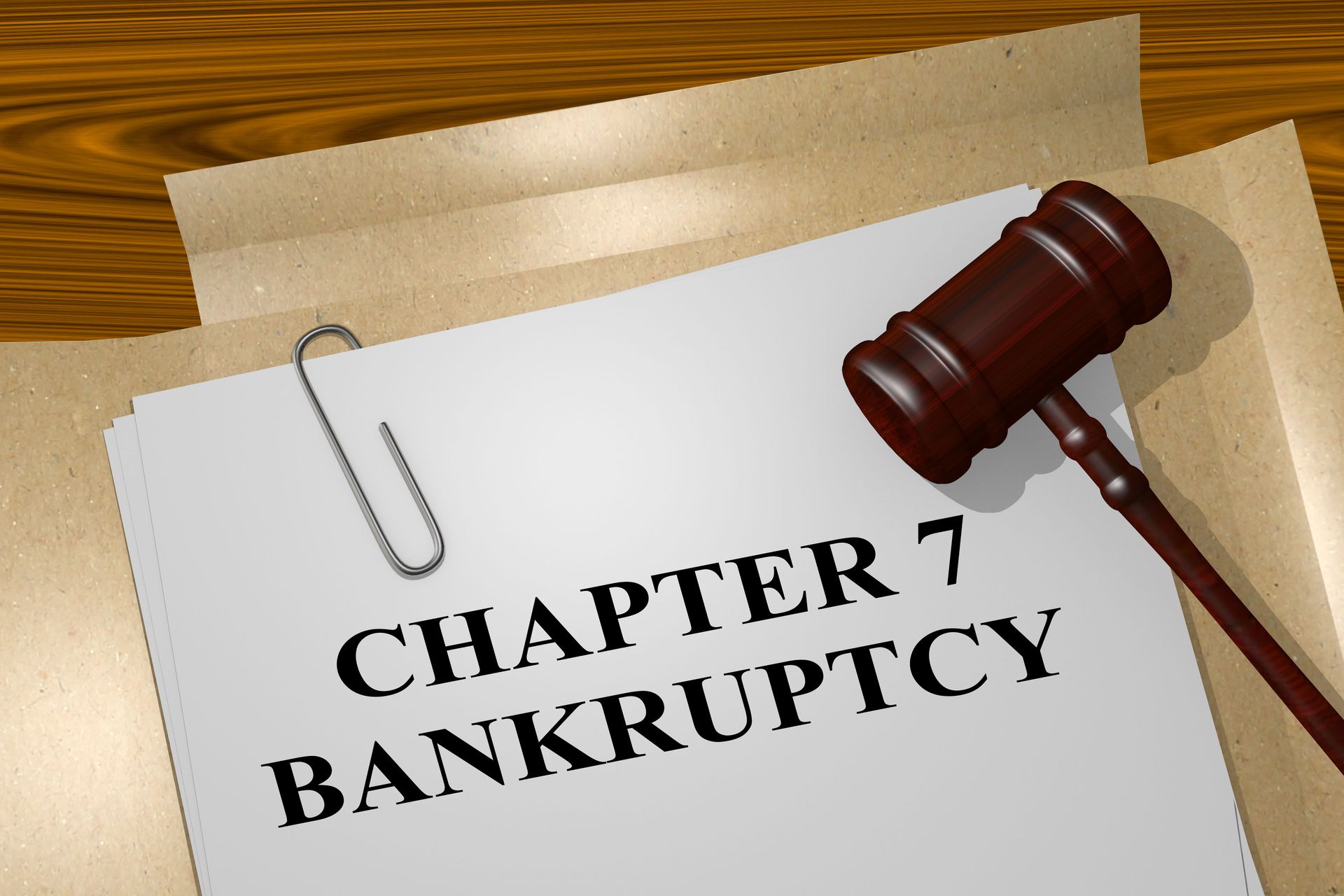Chapter 7 vs. Chapter 13: Choosing the Right Legal Services per Bankruptcy Type
This article explores the differences between Chapter 7 and Chapter 13 bankruptcy, guiding the selection of the appropriate legal services for each type. By understanding the unique aspects of each chapter, debtors can make informed decisions to successfully navigate the bankruptcy process. Bankruptcy can often be a daunting and overwhelming experience, but having the right knowledge and legal support can make a significant difference. Both Chapter 7 and Chapter 13 offer pathways to financial recovery, yet they cater to different financial situations and goals. Hence, assessing one's financial circumstances alongside legal services is crucial for selecting the best course of action.
Understanding Chapter 7 Bankruptcy
Chapter 7 bankruptcy, often referred to as liquidation bankruptcy, involves the selling of a debtor's non-exempt property. The proceeds are then distributed to creditors to discharge the debtor's obligations. It offers a fresh start for individuals whose income is insufficient to repay the debts. A significant aspect of Chapter 7 is its focus on liquidation, making it applicable for debtors who do not have significant property they wish to keep. This type of bankruptcy is advantageous for those facing severe financial stress and seeking quick debt relief.
To qualify for Chapter 7 bankruptcy, a debtor must pass the means test established by bankruptcy law. The purpose of the means test is to determine whether an individual's income is low enough to warrant relief through Chapter 7. This test compares the debtor's average monthly income against the median income of households in their state. According to epiq, financial stress is exacerbated by increased mortgage delinquencies (11% FHA portfolio) and government job layoffs impacting income stability. Individuals who fail the means test might need to consider Chapter 13 as an alternative.
In Chapter 7 proceedings, the bankruptcy trustee plays a pivotal role in managing the case. The trustee is responsible for reviewing the debtor's petition and verifying the information provided. They oversee the liquidation of the debtor's non-exempt assets and ensure creditors receive their portion. Furthermore, the trustee investigates any potential fraud or inaccuracies to protect the integrity of the process. The trustee's actions are integral to ensuring transparency and fairness throughout the Chapter 7 bankruptcy proceedings.
Understanding Chapter 13 Bankruptcy
Chapter 13 bankruptcy is often called \"reorganization bankruptcy\" and is designed for debtors with regular income who wish to repay their debts over time. Unlike Chapter 7, Chapter 13 allows debtors to retain their property while implementing a court-approved repayment plan. Typically, the repayment period spans three to five years, during which court oversight ensures compliance. This form of bankruptcy is beneficial for those who want to protect significant assets or manage secured debt obligations. By reorganizing their debts, filers can often prevent the foreclosure of homes and other valuable properties.
Eligibility for Chapter 13 requires a debtor to have a regular income and meet certain debt limits. As of the current guidelines, unsecured debt must be less than approximately $419,275, and secured debt must not exceed $1,257,850. The debtor must also propose a feasible repayment plan that meets the approval of both the bankruptcy trustee and the court. Stability of income is crucial, and debtors must demonstrate the ability to maintain repayment obligations. Government job layoffs can impact income stability, potentially affecting Chapter 13 eligibility, according to recent economic data.
In Chapter 13 bankruptcy, the trustee plays an essential role in evaluating and administering the debtor's repayment plan. The trustee assesses the feasibility of the proposed plan and ensures compliance with bankruptcy laws. They collect payments from the debtor and distribute them to creditors according to the plan's terms. The trustee's oversight is crucial in maintaining accountability and fairness throughout the case. Cooperation between the debtor, their attorney, and the trustee is necessary for the successful navigation of a Chapter 13 bankruptcy.
Comparing Legal Services Needs for Chapter 7 and Chapter 13
The initial consultation with an attorney is critical in determining the appropriate bankruptcy chapter for a debtor's situation. During this phase, legal services can evaluate the debtor's financial status, income level, and debt obligations. They provide guidance on the potential benefits and drawbacks of both Chapter 7 and Chapter 13 filings. A thorough understanding of the debtor's circumstances allows for a more targeted approach in choosing the suitable bankruptcy option. The expertise of the attorney in interpreting complex financial data, particularly in light of economic factors like mortgage delinquencies and layoffs, is crucial for accurate case assessment.
Preparing bankruptcy filings requires detailed documentation and adherence to legal protocols. Attorneys assist in compiling necessary information, such as income statements, debt listings, and asset valuations. Accurate and complete filings are essential to prevent delays and ensure smooth proceedings. In the context of Chapter 13, attorneys also aid in crafting a repayment plan that aligns with both the debtor's capacity and legal standards. Legal expertise is instrumental in navigating the procedural nuances and anticipating potential challenges during the submission phase.
Having representation during court proceedings is pivotal to the success of a bankruptcy case. Attorneys play a vital role in guiding debtors through hearings, creditor meetings, and any disputes that arise. Their presence ensures that the debtor's rights are protected and their interests represented effectively. Experienced attorneys facilitate smoother negotiations with court officials, trustees, and creditors. The efficacy of the legal strategy not only influences court outcomes but also affects the debtor's financial recovery trajectory.
Choosing a Bankruptcy Attorney
Evaluating an attorney's qualifications and experience is a vital step in selecting effective legal representation. A seasoned attorney brings valuable insights and strategic acumen essential for navigating the complexities of bankruptcy law. Prospective clients should verify credentials, bar membership, and experience in handling bankruptcy cases similar to their own. Proficiency in addressing issues like mortgage delinquencies and income stability is particularly beneficial. This due diligence assures clients of the attorney's capability to advocate effectively and manage their case.
Research into an attorney's reputation and client reviews provides transparency and insight into their practice. Online platforms and legal directories offer testimonials detailing the experiences of past clients. While reviews highlight strengths and competencies, they also point to potential weaknesses or unresolved issues. Seeking referrals and personal recommendations can supplement online research and provide a well-rounded perspective. Trust in the attorney's reputation is foundational for establishing confidence in their legal services and anticipated outcomes.
A positive attorney-client relationship is underpinned by mutual trust and comfort, particularly in bankruptcy scenarios. Initial consultations serve as a gauge for compatibility and communication style, essential for successful collaboration. Clients must feel comfortable discussing sensitive financial details candidly with their attorney. The attorney's ability to demonstrate empathy, patience, and understanding fosters a supportive environment. This relationship dynamic is crucial for effectively navigating the emotional and financial complexities of bankruptcy with assurance.
Engaging an attorney specialized in bankruptcy law offers significant advantages over a general practice attorney. Specialists possess an in-depth understanding of the legal framework and strategic nuances specific to bankruptcy proceedings. Their experience allows for more precise case handling and an informed approach to problem-solving. They are adept at identifying optimal solutions tailored to the client's unique financial situation, enhancing the likelihood of a favorable outcome. Selecting a specialist reinforces confidence in the attorney's ability to manage complex legal challenges adeptly.
Selecting the right legal services for either Chapter 7 or Chapter 13 bankruptcy significantly affects the outcome of the case. Thorough comprehension of each chapter's nuances, combined with skilled legal representation, empowers debtors to navigate their financial recovery journey with confidence. Attorneys provide essential support through every stage of the bankruptcy process, from initial consultations to post-discharge guidance. Understanding the intricacies of cost versus benefit ensures informed decisions that align with financial goals. Proper legal services play a critical role in optimizing bankruptcy outcomes, restoring financial health, and securing future stability. For more information about the services that we offer, reach out to our incredible team at Hedtke John F Law Office today!












Share On: